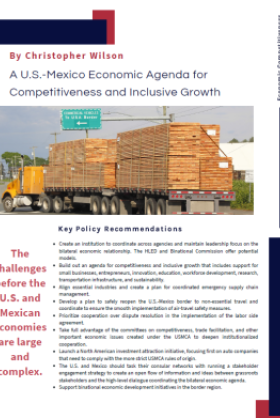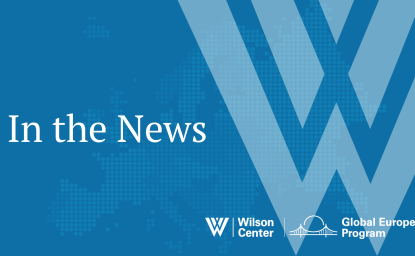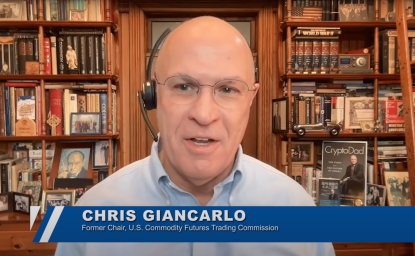A US-Mexico Economic Agenda for Competitiveness and Inclusive Growth


"The challenges before the US and Mexican economies are large and complex. Both nations face job loss, recession, and growing poverty as a result of COVID-19. The recession will only reinforce structural inequality that tears at the fabric of each country and our region as a whole. Global competition is on the rise, and the United States and Mexico have each struggled with the disruption caused by China’s emergence as a global economic power. But if the challenges are complex, the argument for US-Mexico cooperation is simple. As neighbors and trading partners, our economies are deeply integrated. We are connected, and we are stronger and more competitive for it. It is tempting to look inward during times of crisis, but our interdependence demands that we instead work together to meet our shared challenges.
To do so, the United States and Mexico must define an economic agenda that resonates with the moment. Issues of trade, investment, and competitiveness have, over the past three decades, come to characterize bilateral economic relations. While those issues remain extremely important and demand continued attention, they are focused primarily on growth rather than equity. Leaving distributional issues to be resolved domestically led to the perception that the US-Mexico economic agenda was by and for elites. The agenda needs to be rebalanced to better respond to the economic insecurity felt by so many Mexicans and Americans. This should be achieved not by taking attention away from trade, investment, and competitiveness, but by ensuring all Mexicans and all Americans share in the prosperity created by the North American partnership. We must seek ways to cooperatively achieve inclusive growth across the region, giving prominence to issues of worker rights and training; small business participation in trade; sustainable economic development; and education and research partnership. This article seeks to construct the outlines of such an agenda, a US-Mexico agenda for competitiveness and inclusive growth."
This policy brief is part of our series "Re-Building a Complex Partnership: The Outlook for US-Mexico Relations under the Biden Administration." The policy briefs will be released individually and published as a volume in early 2021.
Author


Mexico Institute
The Mexico Institute seeks to improve understanding, communication, and cooperation between Mexico and the United States by promoting original research, encouraging public discussion, and proposing policy options for enhancing the bilateral relationship. A binational Advisory Board, chaired by Luis Téllez and Earl Anthony Wayne, oversees the work of the Mexico Institute. Read more




